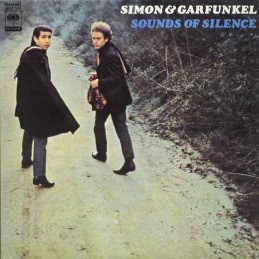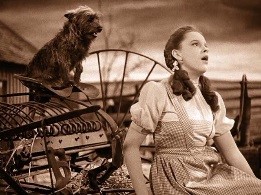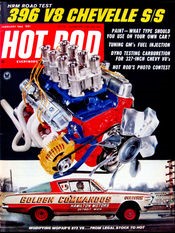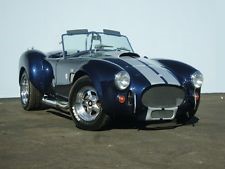My iPhone is connected via Bluetooth to my hearing aids. The phone’s “accessibility” features manage the connection. For example, when I get a call or if Siri is giving me directions, I hear it through my hearing aids and other active apps get muted. I talk to the phone in front of me rather than holding it to my ear. It takes a bit to get used to but is very helpful.

My hearing aids are tuned to the amount of my hearing loss associated with specific frequency ranges. The volume of each frequency range is adjusted so I hear the frequencies at the correct volume relative to the other frequency ranges. It is not perfect but it is far better than just making everything 30% louder.
When I use my phone to listen to music, my hearing aids effectively become professionally tuned custom stereo ear buds. From my perspective, the sound is incredible. I have had poor hearing since the 5th grade so this is a way cool thing for me.
Several weeks ago I subscribed to the on Amazon Music Unlimited with its “Tens of millions of songs”. It might have millions of songs but for the first couple weeks I listened to the popular music from my teen-aged years. The depth and breadth of the Amazon Music collection of oldies is impressive. The sound quality I heard made me smile, a lot.

The first draft of this post was about how connected technology made it possible for me to hear my music better. I choose “Sound of Silence” by Simon and Garfunkel as my example only because it came up next on the playlist I was listening to. I then wrote the following sentence: “I have listened to the same version of this same song for over the past 50 years on radio, albums, 8-track tape, cassette tape, CD, windows media player, iTunes, YouTube, Pandora and now Amazon Music Unlimited.”
I could not put my finger on it but something in that sentence gave me a bad feeling. I tried reworking the sentence a dozen different ways. Each re-write did not work. It took some time but finally I came to the realization that I literally have spent over 50 years of my life and lots of money on albums, tapes and CDs so I could listen to the same versions of the same songs over and over again for those 50 years. I did not know if I should laugh or cry. At home, in the car, at work, while shopping, etc. for 50 plus years I have pretty much listened to the same set of songs.
Most people think the music they listened to between ages 12 to 22 is the best. There are all sorts of theories why, but for whatever reason, we all pretty much love the music of our own teenaged years. Sure the songs of my youth sounded better to me now because of my current hearing aids, but the scary thing to me is that there have been 50 years of songs which I have not been paying attention to. Have I been living in the past? I literally had to stop writing for a couple days to think about the answer.
When I started this post, I thought music streaming services were cool because they had all of the music from my teen-aged years. Now I think streaming music is cooler because I am able to try out all sorts of other music for the same monthly subscription fee. It is about time that I listen to music other than the golden oldies of my teen years. You have to leave your comfort zone if you want to live a full life.
I started by listening to the Amazon playlist called “The 50 most Played Songs of 2017 – So far”. Ed Sheeran has several songs on the list. There is Hip hop, country, pop, and other genres represented. The lyrics for some songs are explicit
but I am an adult and can handle hearing a swear words in a song. Kendrick Lamar’s, “Humble” was surprisingly good. The chorus includes the refrain “Bitch, sit down, be humble” which shocked me at first, then made me smile and then made me think. Which, as I thought about it, is probably why it is one of the 50 most played songs in 2017, so far.
It was time to re-write this post. It is now about how connected technology makes things practical that were not practical without the technology. Connected technology allows me to hear songs better but also makes it easy for me to explore a whole range of different songs from different genres. .
I like lots of music but have a limited budget. Amazon Music Unlimited has over 10 million songs and costs me $7.99 per month. There are other streaming music services, Amazon is just the one I am using now. They all have numerous ways to access and discover a wide variety of music. What makes streaming music so cool is that you can discover and listen to all sorts of music. The artists get paid when you stream but it does not cost you more to stream more. Sure you can listen to the oldies but you can listen to millions of other songs. Not only are there the songs but there are lots of ways to access the songs. Try a playlist. Try an artist. Try an album. Try a song. Try a genre. Try a station. Try the song of the day.
I tried some hip-hop. More interesting than I first thought. Give me time I will figure out what type of hip-hop I like and dislike.
I tried some opera, the 3 Tenors were good not great to my ears. Will listen to some more opera but suspect it will not end up as my favorite type of music.
Tried old country. George Strait is very good. Thinking some outlaw country will be next for me.
Polka? When I worked as a pizza cook at Cicero’s at Har Mar and riding in a boat with my father-in-law, I heard lots of polka. I just listened to “Too Fat Polka”. It was terrible and included the words: “I don’t want her, you can have her, she’s too fat for me” but I listened to it all the way through. Probably will not revisit polka for a while.
Show tunes? The Hamilton cast recording is great. I like show tunes.
Classical, which kind? Guitar is great to have in the background while I write. I will investigate more classical music.
I looked up music from the following: My nephew was in the Selby Tigers. Dan Cavanagh is a neighborhood kid who became a jazz artist, professor and omposer. Buddy Rich was a great drummer. If you like a punk cover of popular songs, try the group: Me First and the Gimme Gimmes. A friend suggested I try Celtic Thunder.
I am on a mission to discover interesting music. I am not in a rush but I have a sense of urgency for some reason. I still like the oldies but there is lots of very good music that is not oldies.
Conclusion
We live in a connected world with access to incredible things. I ask my phone for directions to a half remembered restaurant and my phone not only figures out what restaurant I want, but gives me their hours and directions to get there.
I have no excuse not to try that interesting sounding place which that person at the party told us about. I don’t need to know how to get there, my phone knows. I have no excuse not to listen to some of the music mentioned by that kid or a friend or whoever.
The past is a nice place to visit once in a while but not a place to live. Life is about creating new memories by living in the present with an eye to the future. Connected technology makes it much easier to create those new memories.

Me First and the Gimme Gimmes – Over the Rainbow


